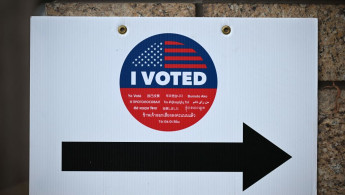Wins by Muslim candidates continue in 2022 US midterms
Tuesday's 2022 US midterms saw historic wins for Muslims in local, state and federal elections, which included net gains and many who held onto their seats.
At the national level, Muslim wins in the House of Representatives were by incumbents Andre Carson of Indiana, Ilhan Omar of Minnesota and Rashida Tlaib of Michigan.
State incumbents did well: Iman Jodeh in Colorado; Saud Anwar and Maryam Khan in Connecticut; Madinah Wilson-Anton in Delaware; Ako Abdul-Samad in Iowa; Abdelnasser Rashid and Nabeela Syed in Illinois; Christopher Benjamin in Florida; Sheikh Rahman in Georgia; Mana Abdi in Maine; Omar Fateh, Hodan Hassan, Mohamud Noor and Keith Ellison (the first Muslim in Congress, now attorney general) in Minnesota; Aboul Khan in New Hampshire; Mujtaba Mohammed and Nasif Majeed in North Carolina; Mauree Turner in Oklahoma; Munira Abdullahi in Ohio; Kayse Jama in Oregon; Jason Dawkins in Pennsylvania; Yasmin Trudeau in Washington; and Samba Baldeh in Wisconsin.
Most of the Muslim wins at the state level, appear to have come from the 2018 Democratic "blue wave" as well as the 2020 race. Though some of the Muslims who won represent the Republican Party, the vast majority are Democrats.
Muslims also did well in numerous local races across the country, including city councils, school boards and other local government races.
Many of these races are being won by young women, a sign that political representation could be changing, not just in terms of religious affiliation, but also with age and gender.
"I'm inspired by the historic wins we are seeing in local and state elections across the country," Mohammed Missouri, executive director of Jetpac Resource Center, which helps train Muslim candidates to run for office, said in a joint public statement with the Council on American-Islamic Relations.
"It shows that the Muslim community is building solid infrastructure for sustained electoral success. Policy decisions on education, housing, climate, and civil rights are shaped by state legislatures and it is critical that our voice is represented in the policymaking process," he said.





 Follow the Middle East's top stories in English at The New Arab on Google News
Follow the Middle East's top stories in English at The New Arab on Google News


